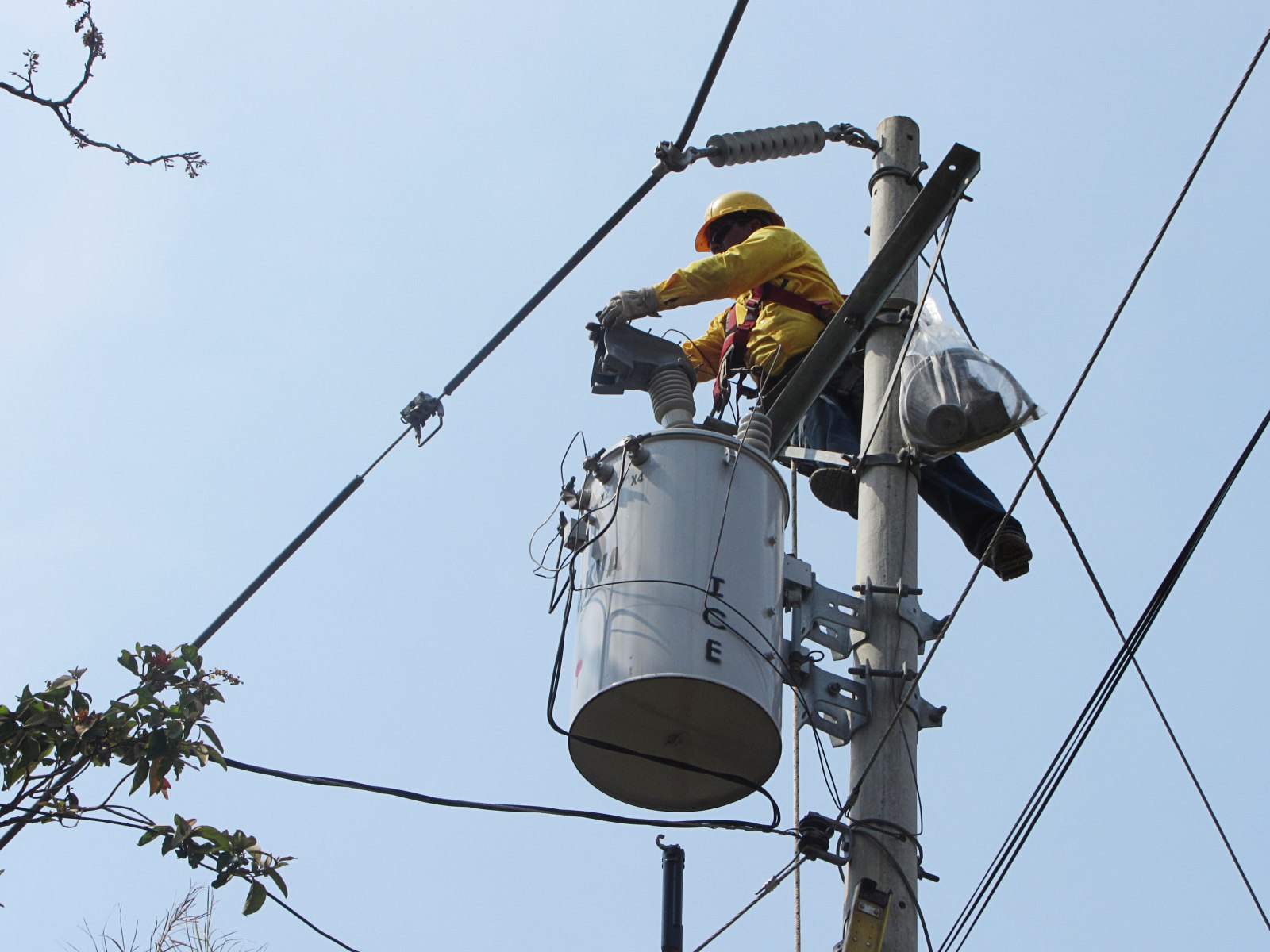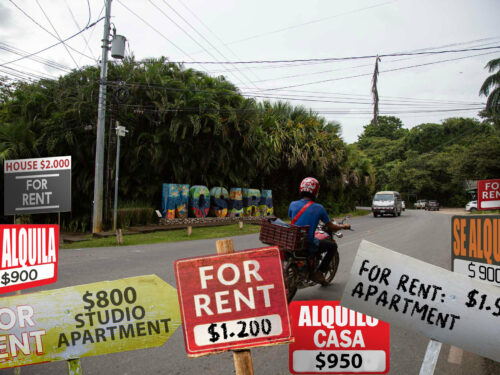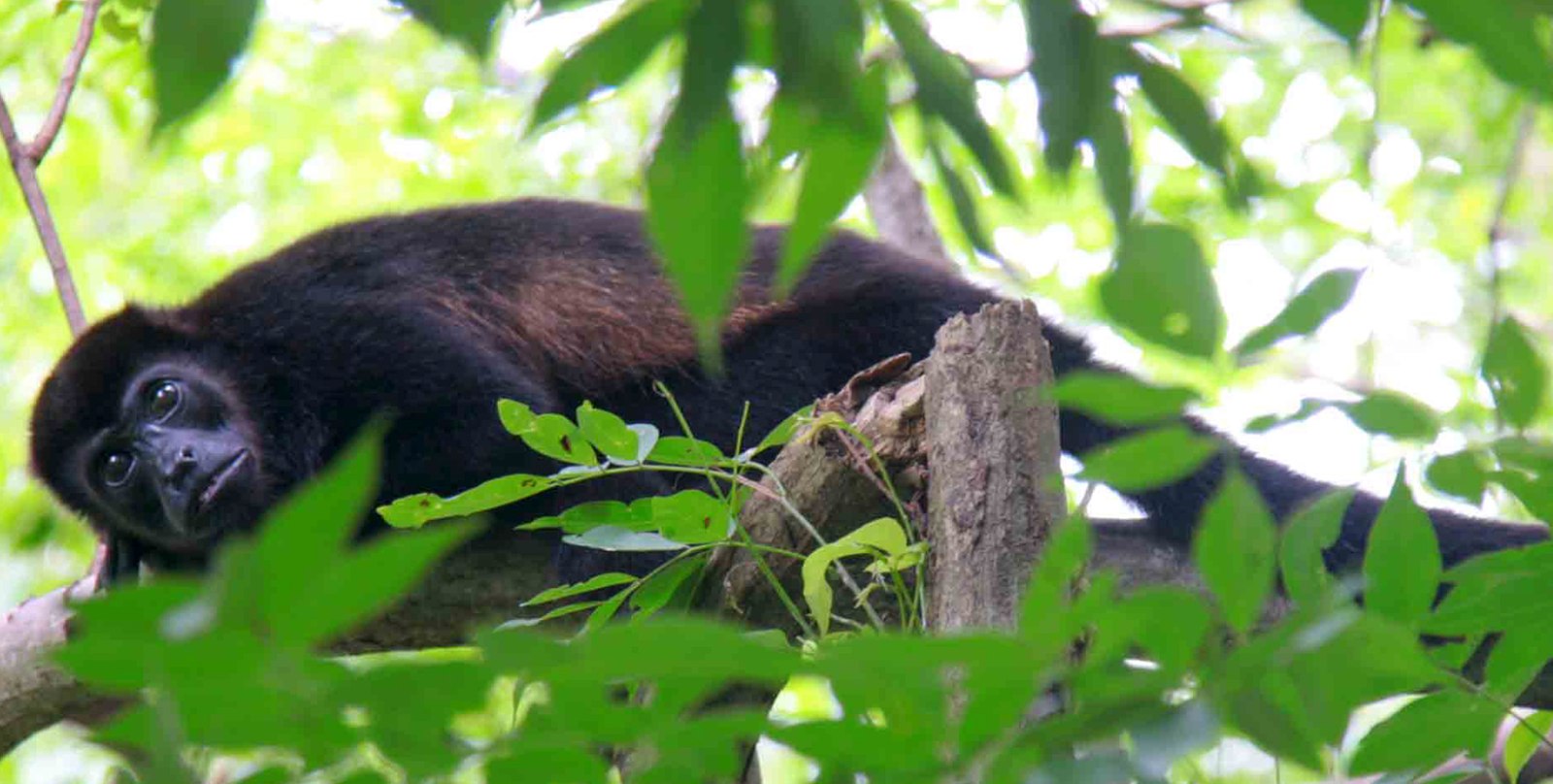
In mid-November, ICE crews began insulating more than 100 transformers that have been identified in the area as danger points for the electrocution of monkeys and other wildlife.
In the past five months, Nosara and its surrounding neighborhoods lost over 100 howler monkeys, electrocuted on uninsulated transformers and power lines. This figure does not include deaths that are unreported or deaths of other arboreal wildlife.
The number of executions spiked when seasonal fruits were ripening on trees growing directly into uninsulated power lines and transformers. These uninsulated transformers and power lines are the number one killer of arboreal wildlife, not only in Nosara, but throughout Costa Rica.
“What happens to these innocent animals who want only to eat a piece of fruit, is horrific suffering and death,” said Steve Coan of SIBU Sanctuary, where rescued animals are rehabilitated for reintroduction into the wild.
In response to the unprecedented number of electrocutions, a meeting was held in Nosara on August 9th with eight of the country’s top officials and engineers from the Costa Rican Electrical Institute (ICE). The officials received a list of more than 220 unprotected transformers in the Nosara area with exact GPS locations and transformer identifiers and saw firsthand the work being done by Nosara Wildlife Rescue to help electrocuted animals.
By the end of the meeting, Jesus Sanchez Ruiz, ICE’s top engineer, committed to helping this project with funds set aside by ICE for similar environmental projects. This would include the purchase of insulation materials, manpower for installations and a new “grua” or bucket truck for Nosara, which is scheduled to be imported into Costa Rica at the beginning of the year.
Within two weeks, three of these locations were insulated by local ICE workers. Then the program halted, evidently because no ICE official had been assigned to oversee and manage the project. As a result, Rafael Quesada Rodriguez, a retired ICE environmental department head, was contracted with funds donated by the Nosara Civic Association to coordinate and manage the “Stop the Shocks” program, coordinating closely between Nosara Wildlife Rescue and the various ICE departments to establish a plan of action.
The number of electrocutions has declined as the mango trees are not producing at this time. However, other seasonal fruits will be ripening and ICE continues to install new uninsulated transformers and power lines to new construction sites both in Nosara and elsewhere in the country, although the Laws of Biodiversity and Wildlife Conservation stipulate that electrical lines through wooded areas are to be insulated to protect the arboreal wildlife.
It is estimated that the project of insulating transformers may take a year to complete with ICE’s continuing support. In the meantime, please report all accidents on the lines or transformers, even if the animal did not survive, in order to help identify dangerous locations. For immediate rescues, call Brenda Bombard of the Refuge for Wildlife at 8824-3323 or 2682-5049. If an injured animal is alive and on the ground, please stay with it to protect it until help arrives. Report to SIBU Sanctuary (8866-4652 or 2682-1474) areas where trees and vines are growing into transformers and power lines where monkeys and other wildlife have easy access. Never cut these areas back yourself or you could be electrocuted.







Comments